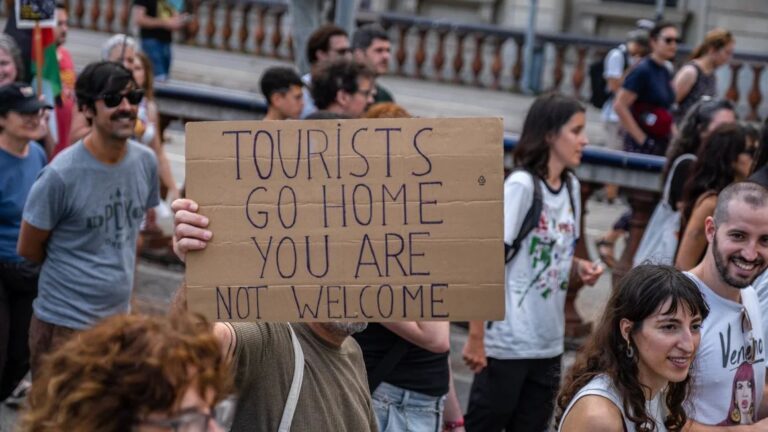Tourism has been a big part of Europe for ages, but lately, things have taken a new turn. From Barcelona to Venice, we’re seeing protests and “tourists go home” signs popping up. It’s not just a few grumpy locals – this is becoming a real movement. But why? That’s what we’re here to figure out.
Evolution of tourism in Europe
Tourism in Europe isn’t new. It’s been around for centuries, starting with wealthy folks going on “Grand Tours” in the 17th and 18th centuries. But things really took off after World War II. Suddenly, regular people could afford to travel, and boy, did they ever!
Past instances of local resistance to tourism
This isn’t the first time locals have pushed back against tourists. Even in the 1960s, some places in Spain were already feeling overwhelmed. But today’s anti-tourism sentiment feels different – more widespread and intense.
Benefits and drawbacks of mass tourism on local economies
On one hand, tourism brings in a ton of money. It creates jobs and helps local businesses thrive. But there’s a downside too.
Disparities between tourist revenues and local quality of life
Here’s the thing: a lot of that tourist money doesn’t always make it to the locals. Big hotel chains and international companies often scoop up the profits, while locals deal with rising costs of living and lower-paying service jobs.
The strain of tourism on natural resources and ecosystems
Let’s talk about Mother Nature for a second. All those tourists need water, electricity, and produce waste. In some places, it’s putting a real strain on local resources.
Examples of environmental degradation due to over-tourism
I’ve seen it myself in places like the beaches of Thailand or the trails of Machu Picchu. Too many feet can literally wear away at these beautiful places we all want to see.
Loss of local culture and identity
It’s sad to see unique local shops replaced by souvenir stores selling the same old stuff. Sometimes it feels like cities are losing their soul to cater to tourists.
Tensions between tourists and residents
Imagine trying to get to work, but your street is blocked by a crowd of tourists taking selfies. It’s no wonder locals sometimes get frustrated!

Measures taken by governments to manage tourism
Some cities are getting creative. Venice is limiting cruise ships, Barcelona is restricting new hotels. It’s a start, but is it enough?
Successes and failures of these policies
Some of these policies seem to be helping, but others have had unexpected consequences. It’s a tricky balance to strike.
Potential strategies for sustainable tourism
We need to think outside the box. Maybe it’s about promoting off-season travel or highlighting less-known destinations.
Balancing tourism and community well-being for the future
At the end of the day, we all love to travel. But we need to find a way to do it that doesn’t harm the very places and cultures we want to experience.
“The challenge isn’t to stop tourism, but to make it work for everyone – visitors and locals alike.”
What do you think? Have you noticed anti-tourism sentiment in your travels? How can we be more responsible tourists? Let’s keep this conversation going!

